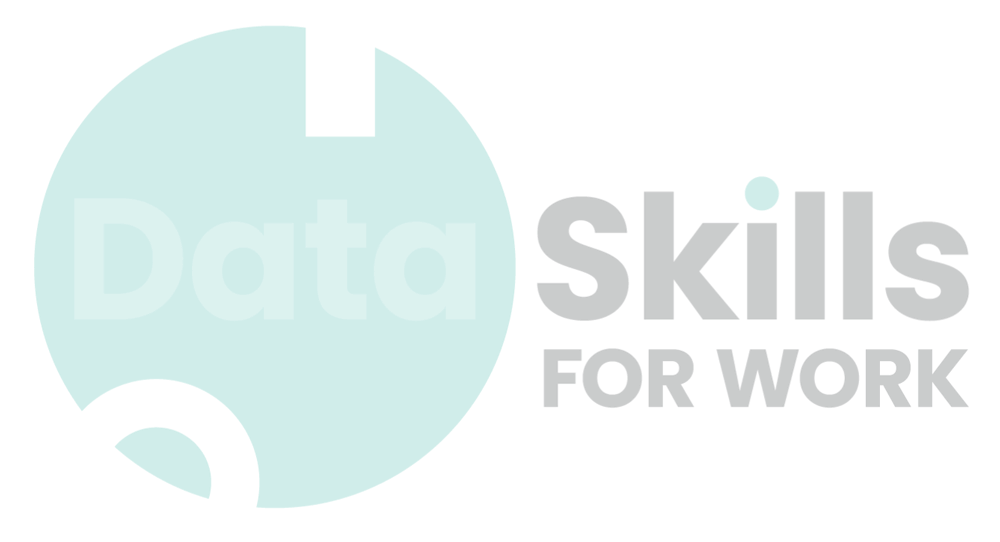Analysis skills
Analytical skills are at the heart of data science – interpreting, manipulating and driving meaning from data.
It is a key skill set for Data Workers. Being so central to data science, it would be expected that Data Professionals would already have a good grasp of the key tools and methods – nonetheless, there may be opportunities for them to upskill, particularly around new platforms and software.
Interpreting data
This involves looking at different types (qualitative/quantitative) and features of data, such as accuracy, completeness and sample size, helping to assess its quality, spot errors, and interpret it into meaningful findings.
Important for: Data Citizen; Data Worker
Analytical tools and visuals
Using data analysis tools to explore and take meaning from data, make calculations (from taking averages to advanced analytical models) and select suitable visualisations, using commonly used platforms (particularly Excel at Citizen and Worker level).
Important for: Data Citizen; Data Worker; Data Professional
Data visualisation
Visualising data to provide insight and tell stories through data. At Data Professional level, this would involve looking at more advanced techniques and specialist platforms.
Important for: Data Worker; Data Professional
Geospatial mapping
Using a geographical information system (GIS) to import, edit, manipulate and present data.
Important for: Data Worker
Introduction to programming for data
An introduction to data science programming languages (the research indicates Python and SQL are in highest demand), and the fundamentals of using programming for data engineering and analysis.
Important for: Data Worker
Programming for data and advanced analytics
Data Professionals often require an ability to take analytics a step further, using programming skills. This competency builds on existing programming skills, with an ability to use these for data collection, analysis, quality checking, and modelling in a wide variety of contexts.
Important for: Data Professional
AI, machine learning and predictive analytics
This is a new and emerging area that some employers are keen to move into. Learners will gain an understanding of different modelling techniques, how to apply them, and an ability to translate this into usable insights and communicate the results.
Important for: Data Professional
